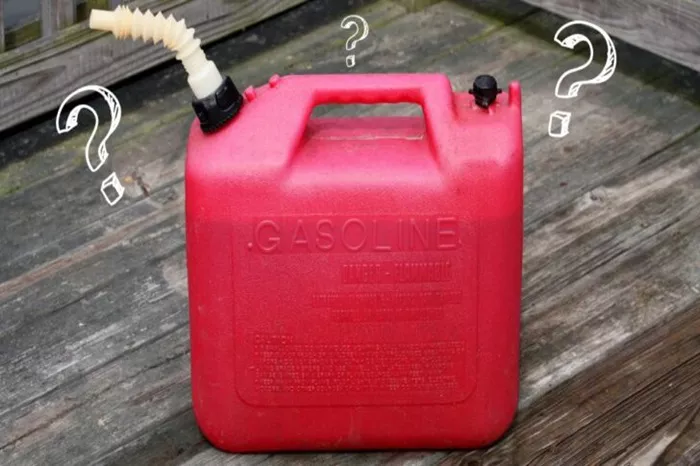Gasoline is a fundamental part of modern life. It powers cars, motorcycles, and many other types of machinery. However, not all gasoline is the same. One term you might encounter is “pure gasoline.” But what exactly is pure gasoline? This article will explore the meaning of pure gasoline, its composition, benefits, and how it differs from other types of fuel.
What Is Gasoline?
Composition of Gasoline
Gasoline is a complex mixture of hydrocarbons. It primarily consists of paraffins, naphthenes, and olefins. These components come from the crude oil refining process, where crude oil is distilled into various fractions. Gasoline is one of these fractions and is specifically designed to power internal combustion engines.
The Role of Additives in Regular Gasoline
Regular gasoline often contains additives to enhance performance, reduce engine knock, and lower emissions. These additives include detergents, antioxidants, and corrosion inhibitors. While these additives improve gasoline’s functionality, they also differentiate it from pure gasoline.
Defining Pure Gasoline
No Additives
Pure gasoline, often referred to as “ethanol-free gasoline” or “clear gasoline,” lacks the additives found in regular gasoline. This means it doesn’t contain ethanol, detergents, or other chemical enhancements. Pure gasoline is essentially straight-run gasoline without any modifications.
Higher Energy Content
Without additives, pure gasoline has a higher energy content per gallon compared to gasoline blended with ethanol. This can result in better fuel efficiency and more consistent performance.
Benefits of Pure Gasoline
Improved Fuel Efficiency
Pure gasoline can offer better fuel efficiency than ethanol-blended fuels. Ethanol has a lower energy density than gasoline, so removing it from the fuel mix allows engines to run more efficiently, potentially leading to better mileage.
Reduced Engine Wear
Ethanol can attract moisture, leading to corrosion and engine wear over time. Pure gasoline reduces this risk, as it does not absorb water in the same way. This can prolong engine life and reduce maintenance costs.
Stability and Storage
Pure gasoline has a longer shelf life than ethanol-blended fuels. This makes it ideal for engines that are not used frequently, such as boats, classic cars, and lawn equipment. It remains stable during long storage periods, ensuring the engine starts easily when needed.
Differences Between Pure Gasoline and Ethanol-Blended Gasoline
Energy Content
As mentioned, pure gasoline has a higher energy content per gallon. Ethanol contains less energy per unit volume, which can reduce overall fuel efficiency in ethanol-blended gasoline.
Environmental Impact
Ethanol is considered a renewable fuel and can reduce greenhouse gas emissions compared to pure gasoline. However, the environmental benefits are sometimes debated due to the energy-intensive process of producing ethanol from crops.
Engine Compatibility
Some engines, especially older models, are not designed to run on ethanol-blended fuels. Pure gasoline is often recommended for these engines to avoid potential damage and ensure optimal performance.
Uses of Pure Gasoline
Marine Engines
Boats and other marine equipment often benefit from using pure gasoline. The presence of water in ethanol-blended fuels can be particularly problematic in humid marine environments, leading to engine issues.
Classic and High-Performance Cars
Owners of classic cars and high-performance vehicles often prefer pure gasoline. These engines were designed before ethanol-blended fuels became common and may run better on pure gasoline.
Small Engines
Lawnmowers, chainsaws, and other small engines are typically more sensitive to ethanol. Using pure gasoline in these engines can improve performance and longevity.
See also: Which Gasoline Has The Best Additives?
How to Identify and Purchase Pure Gasoline
Labeling at Gas Stations
Gas stations that offer pure gasoline often label it as “ethanol-free” or “clear gasoline.” It is essential to check the labels and possibly ask the station attendant for confirmation.
Availability
Pure gasoline is not as widely available as ethanol-blended gasoline. It is often sold in regions with a high concentration of marine or agricultural activity. Some specialty fuel suppliers also offer pure gasoline.
Price Consideration
Pure gasoline is usually more expensive than regular gasoline due to its lower production volume and specialized market. However, the potential benefits in fuel efficiency and engine maintenance can offset the higher cost.
Challenges and Considerations
Limited Availability
One of the main challenges with pure gasoline is its limited availability. Not all regions have stations that offer ethanol-free options, which can make it difficult for consumers to find and purchase.
Environmental Impact
While pure gasoline offers several advantages, it also has a higher carbon footprint compared to ethanol-blended fuels. This raises environmental concerns, particularly in regions focused on reducing emissions and promoting renewable energy sources.
Regulatory Restrictions
Some areas have regulations that mandate the use of ethanol in gasoline to promote renewable energy and reduce emissions. These regulations can limit the availability of pure gasoline and affect consumer choice.
Conclusion
Pure gasoline, with its lack of additives and higher energy content, offers several benefits, including improved fuel efficiency, reduced engine wear, and better stability during storage. However, it is not without its challenges, such as limited availability and environmental concerns. Understanding the differences between pure gasoline and ethanol-blended fuels can help consumers make informed decisions about the best fuel for their engines and needs.
Pure gasoline remains a valuable option for specific applications, particularly in marine, classic car, and small engine markets. As the energy landscape evolves, the role of pure gasoline may continue to adapt to meet the demands of consumers and regulatory environments.
Related topics:
What Is The Best Oil For Gasoline Engine?

